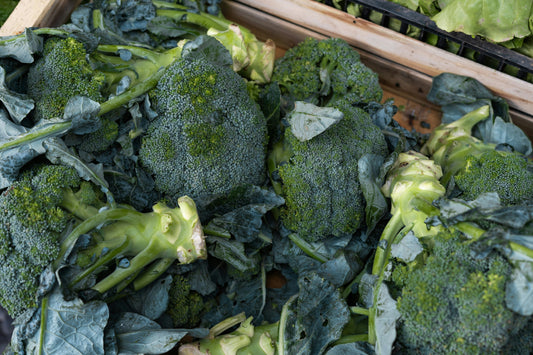Choline is a very important but often overlooked nutrient, especially in pregnancy and preconception health. A small amount is made by the liver but the rest of your daily requirement must be obtained through the diet.
Choline has a whole lot of different jobs in the human body ranging from supporting the nerves and liver to function, helping mood, and working with folate during pregnancy to help your baby's brain and nervous system develop. In circumstances where an individual has an inadequate choline intake the risk of poor birth outcomes increase. These include neural tube defects, cleft palate and life long memory issues.
As a result of its role in supporting a baby’s development, choline requirements increase whilst pregnant and breastfeeding to 450mg and 550mg respectively, per day.
Studies have investigated the relationship between a mother taking choline supplements and the risk of neural tube defects. One study found that when women with the highest choline status were compared with women of the lowest status, their offspring had a 51% lower risk of having a neural tube defect (NTD). A second study found women with the lowest choline concentrations mid-pregnancy had an associated 2.4-fold higher risk of NTD. Though these results appear supportive of a protective effect, subsequent studies have failed to find the same results so more research is required. On the other hand, the relationship between folate intake and neural tube defects is well established.
When a mum is deficient in choline intake herself, the concentration of choline in the breastmilk is also deficient. The choline status of a baby is linked directly to the amount of free choline in the breastmilk. Babies who are breastfed have been identified as having a greater choline status than those who are formula-fed.
Animal products including meat, egg yolks and salmon are primary sources of choline. Choline is also found in small volumes across a wide range of plant-foods including tofu, soy-milk, wheat germ, edamame, peanut butter, oats, nuts, peas, beans, banana, oranges, cauliflower, Brussel sprouts, asparagus and more.
So what does this mean for all of the mums and the mamas-to-be out there?
In 2017 the American Medical Association advised that prenatal vitamin supplements should contain choline and that pregnant women should be having adequate intakes of choline in their diet as well. Choline is not found in all multi-vitamins so should be checked for before purchasing. Popular NZ brand, Elevit, does not contain choline and is one of the many reasons I don't support the use of this supplement. Focusing on obtaining a variety of food sources, as well as using a prenatal supplement with choline, is equally important in supporting fetal development and minimizing the risk of pregnancy complications.
For help choosing the right prenatal supplements for your health and pregnancy book in for a supplement review here.




